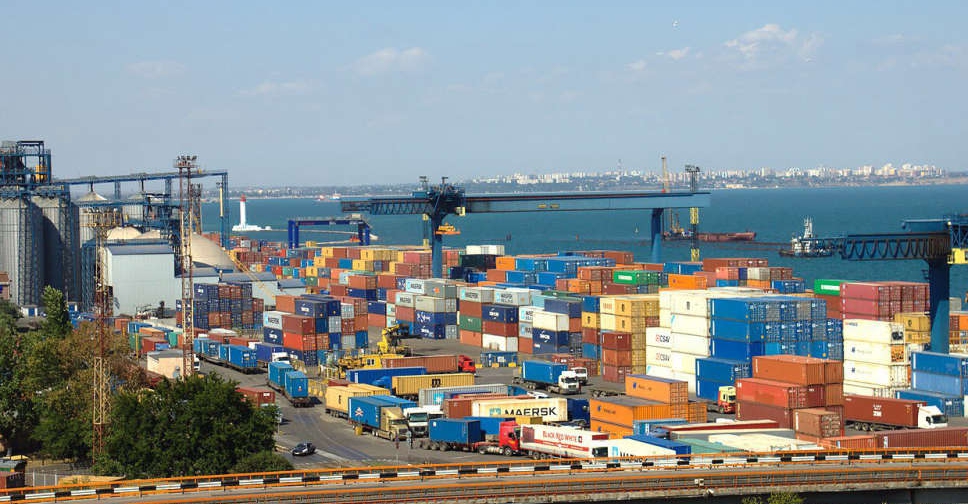
Russia launched air attacks on Odesa for a second night in row but the key port will not be intimidated and will continue its work to export grains, Ukrainian officials said early on Wednesday.
The Odesa region's governor, Oleh Kiper, said on social media that air defence systems were engaged in repelling the Russian air attack and urged residents of the region to stay in shelters.
The attacks on Odesa, one of Ukraine's main ports for exporting grain, followed a pledge of retaliation by Russia after a blast on a bridge linking Russia to the Crimean Peninsula on Monday that Moscow blamed on Ukraine.
Shortly after the bridge was hit on Monday, Moscow withdrew from the year-old grain agreement, a move the United Nations said risked creating hunger around the world.
"(They're) are trying to scare the whole world, especially those who want to work for the grain corridor Ukraine, Turkey and the United Nations," Serhiy Bratchuk, spokesperson for the Odesa military administration, said in a voice message on his Telegram channel early on Wednesday.
"But I think that all normal, rational people will look and say: Odesa was not afraid, is not afraid and will not be afraid - we will work."
Ukraine's Air Force warned of probable Russian cruise missile launches from the Black Sea overnight. All of the eastern part of Ukraine was under air raid alerts, starting soon after midnight on Wednesday.
There was no immediate comment from Russia on the attacks. Pro-Kremlin military bloggers said that the strikes were "massive" and Moscow was using a combination of missiles and drones to attack Odesa and other regions.
Reuters could not independently verify the reports.
On Tuesday, Russia's Defence Ministry said it had hit military targets in two Ukrainian port cities overnight as "a mass revenge strike" in response to the attack on the Crimean Bridge.

 UK inquiry finds 'chilling' cover-up of infected blood scandal
UK inquiry finds 'chilling' cover-up of infected blood scandal
 Iranian President Raisi killed in helicopter accident, state media says
Iranian President Raisi killed in helicopter accident, state media says
 ICC prosecutor seeks arrest warrants for Israeli, Hamas leaders
ICC prosecutor seeks arrest warrants for Israeli, Hamas leaders
 Assange given permission to appeal against US extradition
Assange given permission to appeal against US extradition
 Israel intends to broaden Rafah sweep, Defence Minister tells US
Israel intends to broaden Rafah sweep, Defence Minister tells US




